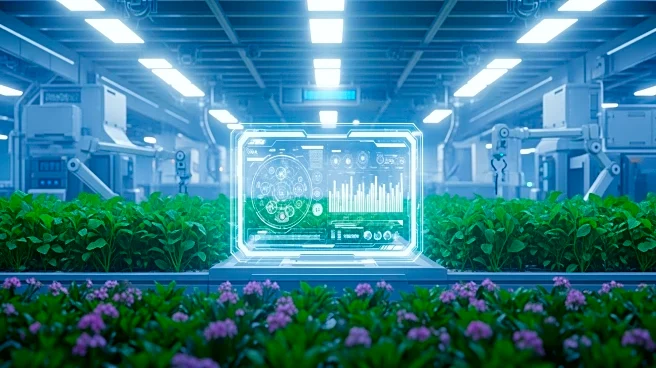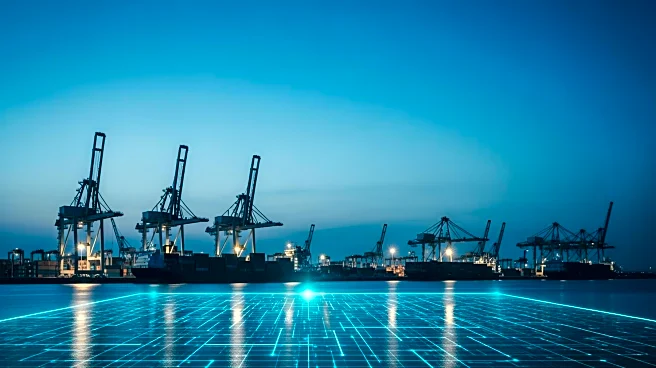What's Happening?
Agroz Inc., a vertically integrated agricultural technology company, has announced a new growth phase that positions agriculture as a high-performing, technology-enabled asset class. Utilizing Microsoft
Azure's AI infrastructure, Agroz has developed the Agroz OS platform, which integrates automation, artificial intelligence, and sustainable design to create scalable, data-driven food production systems. This initiative aims to redefine agriculture as investable infrastructure, offering predictable yields and ESG value. The company's first commercial offering, co-developed with Harvest Today, demonstrates how AI-orchestrated environments can deliver pesticide-free produce closer to consumption hubs while reducing resource intensity.
Why It's Important?
The initiative by Agroz Inc. represents a significant shift in the agricultural sector, aligning food production with infrastructure investment principles. This approach offers long-term scalability and sustainability, appealing to institutional partners seeking exposure to sustainable assets. By integrating AI and automation, Agroz aims to increase productivity, lower costs, and accelerate sustainable food access, potentially transforming the agricultural industry into a high-growth, investable asset class. This could lead to increased investment in agri-tech, driving innovation and environmental benefits.
What's Next?
Agroz plans to expand its portfolio of AI-driven agricultural systems, with future products like Agroz Copilot providing real-time recommendations and predictive analytics to optimize operations. The company's growth momentum is supported by government incentives and recognition from various sustainability organizations. As Agroz continues to develop its technology platform, it may attract more institutional investors and contribute to the broader adoption of sustainable agricultural practices.
Beyond the Headlines
Agroz's strategy could have ethical and cultural implications, as it promotes sustainable food production and reduces environmental impact. The integration of AI in agriculture may also raise questions about data privacy and the role of technology in traditional farming practices. Long-term, this development could lead to shifts in how food is produced and consumed, impacting rural economies and global food security.









